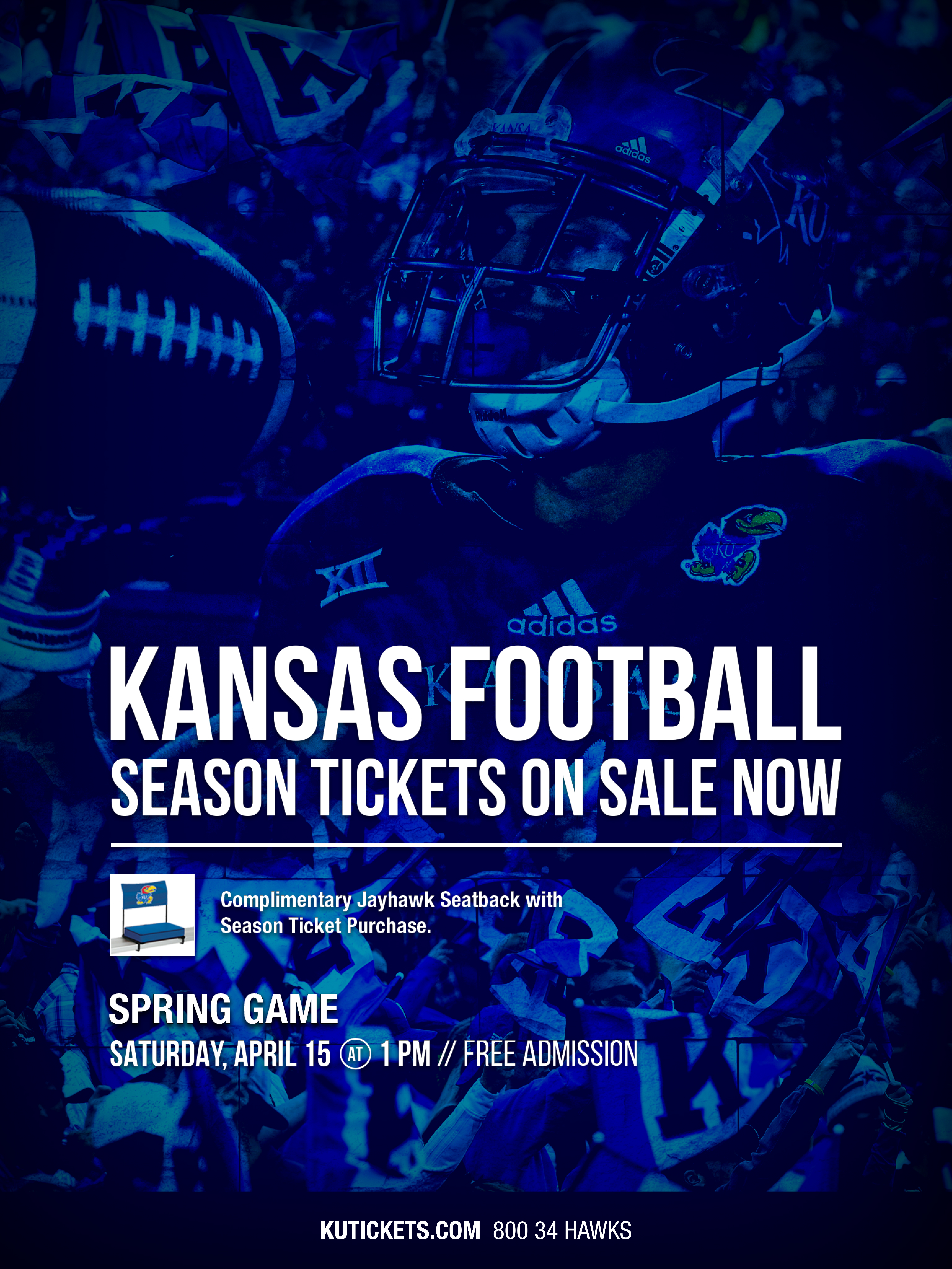RCW: More than science
Rowing didn’t always come so naturally to University of Kansas senior Jordan Helms. As a five-sport athlete at Le Mars Community High School in LeMars, Iowa, Helms expected her strength alone to make her successful at rowing. However, she quickly realized it would take much more than physical strength.
From the young age of 11, Helms became captivated with the science and physiology behind strength and conditioning.
“I was obsessed with ‘American Gladiators’ and I wanted to look just like the women on there, so I started lifting,” Helms explained. “I even started lifting with the football team throughout high school during its summer camps, doing exactly what they did.”
Helms began her college search her junior year of high school. On a visit to Creighton she was told how much she resembled a rower who had just been recruited. Curiously, Helms began to look for more information on college rowing.
A friend of Helms’ parents has a daughter who rowed at Kansas. She offered to show her around the campus on a visit and that’s when Helms decided she would go to KU and walk onto the rowing team.

Helms entered the University of Kansas in the fall of 2013 as one of the few freshmen fortunate enough to already know what she wanted to do with her future. She knew she wanted to coach, so she decided to major in exercise science.
While Helms had no prior rowing experience, she had decided to walk on to KU’s team prolong her athlete lifestyle through college.
“I walked on my freshman year, after that I just fell in love with rowing. My first year was tough though, I didn’t get it right away,” Helms said. “My strength in high school was how strong I was, so I tried to channel that by pulling on the oar, but I just wasn’t getting the rhythm of it. It took a lot of trial and error.”
Helms was frustrated. As an athlete, she didn’t want to continue to do something she couldn’t get better at. So, she gave herself an ultimatum – she would work as hard as she possibly could to get the hang of it or she would quit the following semester.
With three months of off-season in the summer leading into Helms’ sophomore year, she worked out diligently keeping the mindset that she wouldn’t quit until she got rowing to click. With all of that hard work and help from coaches, Helms was able to overcome her shortcomings from her freshman year.
“Rowing in a single boat, I was the last person every lap in practice,” Helms said. “Then one day I felt the connection of the water and after that it was like everything clicked and I rose to the top boat.”
Last season, Helms helped race the First Varsity Eight to earn Big 12 Boat of the Week honors.
The more Helms has gotten into rowing, the better she has become at the sport and the more she has latched onto her dreams of becoming a coach.
In order to help reach those professional goals and making her career dreams come true, Helms has taken advantage of every opportunity presented to her by the university’s exercise science department. She has attended numerous conferences like the Greenbush Conference in Eudora and the Midwest Sports Performance Conference, put on by KU’s Assistant Athletic Director for Sports Performance, Andrea Hudy.
“I just thought the more I can hear from other coaches, the better I’ll know if I truly want to do this and the more I can learn,” Helms said.

One of these other professionals in the field that Helms has learned from is the owner of Lawrence’s Athletic Strength Institute and mentor to Helms, Chris Dellasega, who argues that many strength and conditioning coaches have very similar approaches to various sports at different levels of competition. Dellasega says what sets Helms apart is her foundational knowledge, in addition to her hands-on experiences.
“You have to factor in that Jordan is a people person, she has an athletic background and she’s approaching strength and conditioning from a different perspective because she’s had exposure outside the collegiate setting,” Dellasega said. “I think that’s something that is very important for a lot of athletes and strength coaches – getting outside experience, by that I mean outside of what they’re used to. Experience that is completely outside of the box.”
With prior experience at another gym in Lawrence, Helms joined Dellasega’s team this year as a trainer. Currently, Helms focuses on coaching high school athletes with hopes of playing at the collegiate level in both one-on-one and small-group settings.
“At first I was super overwhelmed, thinking what if I can’t actually do this? But then I realized you’re dealing with people. If you’re a people person, it’s going to work out,” Helms said.
When Helms began her journey in this field, she initially thought the most important part of coaching was the science behind it and having the perfect program. She soon learned that was not the case.
“It is so much about the connection,” Helms said. “I thought it was all about having them do this many reps, this many sets, this intensity. It wasn’t until I started to work with these younger kids that I saw how they adapted to my coaching style because of how much they trusted me.”
Helms also added an older population of triathletes, who showed so much promise with her, but she didn’t quite understand why they hadn’t been successful at their previous gyms.
“I’m only 22,” Helms said. “I don’t think I’m writing the best program in the world, but it was the connection they were building with me that made a difference. Coaching is so much an art as well as a science.”
Dellasega mentioned the first thing that came to mind when thinking about Helms’ current and future success in the field of strength and conditioning is her ability to gain others’ trust and simply by being a people person. He claims to be successful in this profession one must be trustworthy and likeable to some degree, otherwise athletes will be much less likely to buy into one’s program.
“Being a people person and being able to get along with people are definitely attributes that Jordan has that are going to take her very far,” Dellasega said. “She also understands the fact that you’re going to have different personality types on your team. When you’re well versed in interacting with a variety of different personality types, you’re going to be in a much better position to get results from your athletes because they’re going to trust you.”

In addition to strength and conditioning professionals like Dellasega, Helms has also looked to her Kansas rowing coaches as great teaching examples. Assistant coach Carrie Cook-Callen is what Helms calls a ‘reflector.’ She first observes and then she will speak.
As a reflector, Cook-Callen quickly noticed how powerful Helms was in short movements; however, Cook-Callen notes that rowing requires to be strong throughout longer movements that utilize the entire body. Cook-Callen recalls Helms struggling with the technique and the reasoning behind the coach’s directions, but over time she saw Helms make the changes and begin to understand the positive impact of change.
“Naturally, Jordan’s studies encouraged her to ask questions to understand the why behind our training plan, technique and to see the big picture,” Cook-Callen said. “The more she learned, the more she bought in. I believe understanding the why and not being able to deny the results she was experiencing really helped her grow as a student in the classroom and as an athlete. She has totally bought in to what we are trying to do here at Kansas rowing and is graduating this May having had a big impact on pushing the program forward.”
Helms’ relationships with her own coaches and mentors have made her realize how imperative it is to have coaches who connect with the client on an emotional level.
“We’re not robots, we’re humans,” Helms said. “I think embracing the emotional side of coaching is what is going to give you your best athletes. When you listen to Olympians get interviewed, how they talk about their coaches shows you it’s so much deeper than rooted in science.”
Cook-Callen believes that Helms has enough experience to be successful as a coach.
“Jordan has experienced a variety of different teachers and coaches and I’m confident that she will pull the best from each to mold and shape her coaching career,” Cook-Callen said.
After recognizing the importance of psychology, in addition to the science behind strength and conditioning, Helms has decided to switch up her plans for graduate school.
“To be frank, my plan was to get my masters in exercise physiology, to continue with science,” Helms said. “Then throughout my current internship with personal training, I realized how much of it is truly psychology. So that changed my mind. I decided I would like to do something that’s a completely different way of thinking and do sports psychology.”
In searching for a job and a place to further her education, Helms stumbled upon what seemed to be the perfect fit. Smith College in Massachusetts had listed a position for a rowing and strength and conditioning coach.

Smith College is the largest private women’s liberal arts college in the United States with an undergraduate enrollment of around 3,000 students. The school does admit both men and women as graduate students, though. Notable alumnae include former First Ladies Barbara Bush and Nancy Reagan in addition to author Margaret Mitchell, who won the Pulitzer Prize for “Gone With the Wind.”
After doing more research, Helms decided the exercise sport studies program at Smith College was exactly what she was looking for.
“The way Smith College does its exercise sports program is unlike any other schools’ I’ve seen,” Helms said. “They make my coaching part of the curriculum and then I will take classes on exercise physiology, sociology, sport psychology, women’s sports and gender studies too. They try to make it a very holistic view on coaching, as it should be.”
While Helms is looking forward to new beginnings at Smith College come August, she already knows that it is her teammates she will miss the most about Kansas.
“Part of the reason I want to be a coach is I love the socialization of it,” Helms said. “I love being around such eager and hungry individuals – just being around competitive women. So, I’m going to miss that as well as competing with some of my best friends.”

